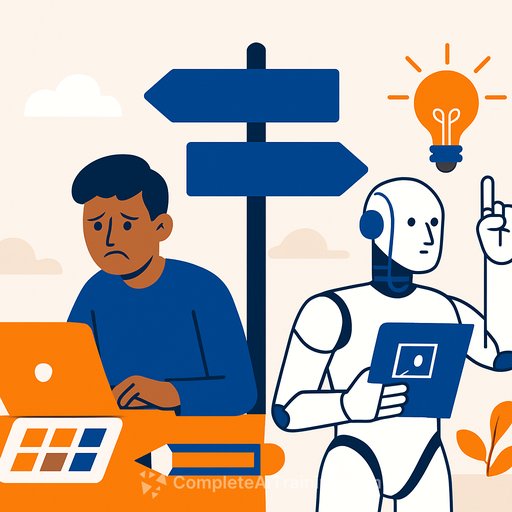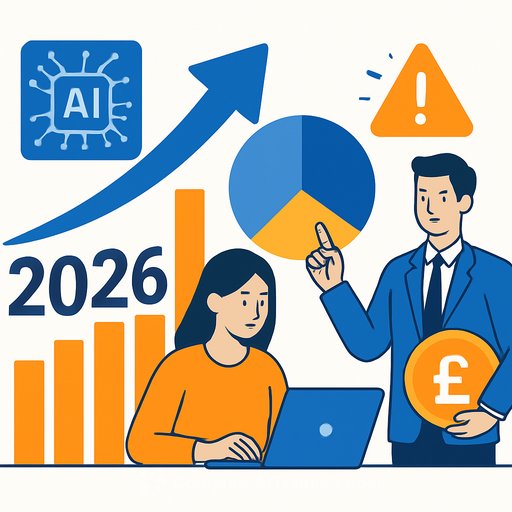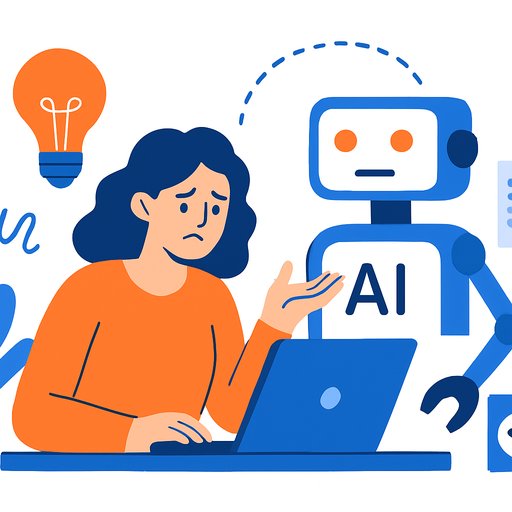The UK’s Creative Workforce Faces Major Disruption
The UK’s creative sector is experiencing significant upheaval. Staff, freelancers, and employers are all dealing with instability, fewer opportunities, and the quick rise of new technologies. A recent report from Creative Access highlights these challenges, showing that over half of creative organisations now use AI—up from just 3% two years ago.
Based on feedback from 300 participants, including 200 individuals and 100 employers, the research paints a clear picture of change in the creative economy. Less than half (42%) of respondents saw any career progress last year, a sharp drop from two-thirds in 2022. This decline is most pronounced among Black, Asian, ethnically diverse, and lower socioeconomic groups.
Career Progress Stalls and Optimism Drops
Nearly 90% of creatives have not been promoted, and more than 80% have not received a pay rise. Optimism about career prospects has fallen sharply—from two-thirds in 2022 to just 31% in 2025. Disabled creatives report the lowest levels of optimism.
Freelancers are feeling the pinch particularly hard, with 46% reporting less work available. The rapid adoption of AI tools is reshaping the landscape: only 3% of organisations used AI last year, but that number has jumped to 53% in 2025.
Training and Ethical Concerns Around AI
The workforce is still catching up with AI integration. Only 18% of individuals have received AI training, and 82% express concerns about the ethical and inclusive impacts of AI in creative roles. This gap in skills and understanding is a critical issue for many in the sector.
For creatives looking to build AI skills, resources like Complete AI Training’s latest courses offer practical pathways to stay current and competitive.
Mental Health Challenges Rise
Mental health issues are becoming more common, with 22% citing long working hours and poor management as key stress factors. Team dynamics and lack of focus on wellbeing also contribute. Disabled creatives report the highest negative mental health impact at 50%, though a third of all respondents acknowledge that their work positively affects their wellbeing.
Diversity, Equity & Inclusion Trends
On the positive side, 44% of organisations have increased spending on diversity, equity, and inclusion (DE&I), up from 35% last year. However, some have cut back—1 in 20 organisations and 1 in 7 larger employers reported decreased DE&I investment. Representation is also slipping, with only 47% of employers saying their teams are more representative, marking a four-year decline.
What’s Next for Creatives?
The creative industries are at a crossroads. With career growth stalling and optimism fading, support for under-represented talent is critical. Nurturing creatives at every career stage is essential to innovation and sustainability.
Investing in people, progression, and partnerships that open doors for diverse talent is the way forward. Ensuring access to relevant training, including AI skills development, will help creatives adapt and thrive in this changing environment.
For those seeking to upgrade their AI capabilities, explore options at Complete AI Training’s job-specific courses to find the right fit.
Your membership also unlocks:






